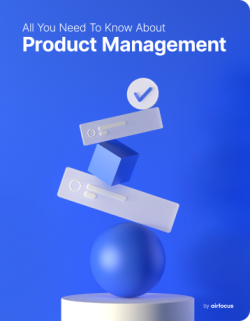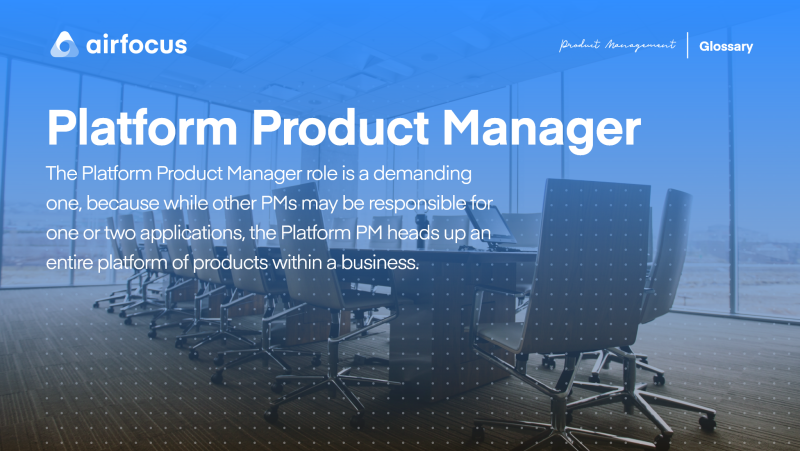Platform Product Manager
What is a Platform Product Manager?
Definition of a Platform Product Manager
The Platform Product Manager role is a demanding one because while other PMs may be responsible for one or two applications, the Platform PM heads up an entire platform of products within a business.
In contrast to the traditional role of the Product Manager (PM), a Platform PM is generally responsible for a much wider array of systems, services, and codebases — all connected by complex APIs. The Platform PM will work alongside engineering and operational stakeholders to ensure the foundational platform is well-maintained and always on. Platform PMs will also work with external vendors to enable integrations with the platform via API.
Uptime is a key concern, as such platforms often form the basis of other applications, meaning trust in the technology plays a critical role in customer relationships. This is where having a deeper understanding of the technical aspects of the role can come in very useful as compared to a traditional product management role.
Platform Product Management vs. Product Management — what’s the difference?
Because platforms are more wide-ranging in their use cases, the specific skills required by a Platform PM are often vastly different from those of a single-app PM.
Perhaps the biggest difference between a Platform PM and a conventional PM is their focus and their scale: the macro vs. the micro, the internal stakeholder vs. the external customer.
We know that might not mean much on its own, so let’s get more specific about the differences between PMs and Platform PMs.
A traditional Product Manager is rightly focused on the needs of the customer and the improvement of the customer experience. The customer-facing PM role is all about packaging features and updates in an appealing way which will encourage end-user adoption.
The Platform Product Manager is focused more on the bigger picture. They don’t look at things at the customer level, but instead at the more zoomed-out, macro lens. The product they manage is foundational in nature, providing the digital bedrock for multiple platforms. Their considerations are therefore focused more inward than outward — on uptime, APIs, storage, and architecture.
What makes a successful Platform Product Manager?
Becoming a successful platform product manager is about more than simply understanding core technologies. Here are just a few of the factors which go into a successful career as a platform product manager:
Strong interpersonal skills. While it’s true that technical skills are essential to the role, much of the Platform PM’s time will be spent working alongside key stakeholders. From the head of operations to engineering leads, it’s essential that a Platform PM be confident and personable enough to work with others every day.
An understanding of technical communication systems. A central part of the Platform PM’s role revolves around the use of APIs to enable communication between the core platform and third-party integrations. Being well-versed in this form of technical communication is a big asset for any Platform PM.
The ability to manage long-term roadmaps. One area that all Platform PMs will be familiar with is long-term scalability. Balancing the workload of a platform is part of the Platform PM’s everyday routine, but it’s also a sign of things to come. Being able to manage a roadmap when user numbers could double in a day is one example of the balancing act Platform PMs must perform.
![product platform manager]()
General FAQ

Glossary categories
Experience the new way of doing product management

Experience the new way of doing product management








